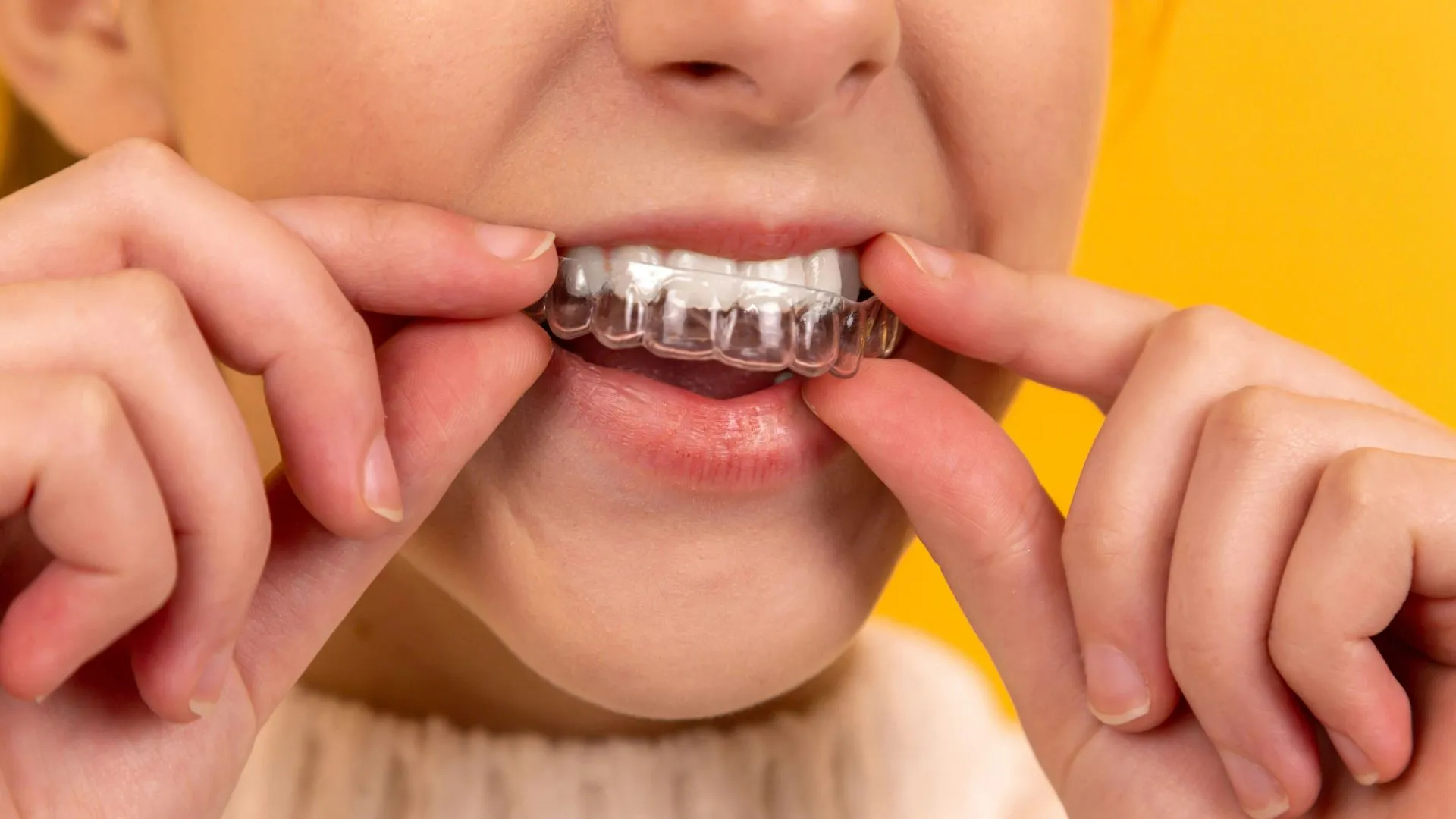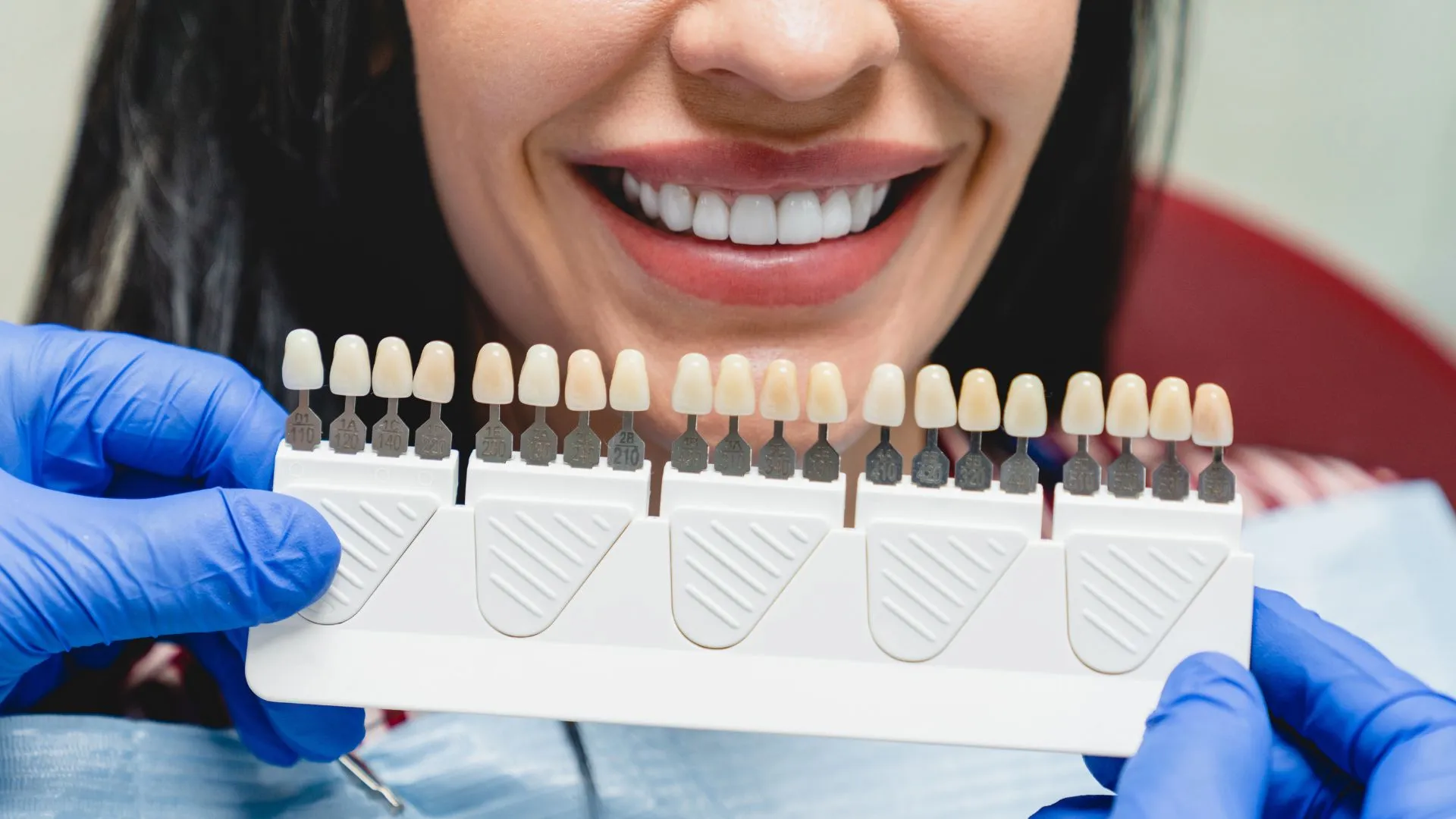Our teeth are the framework of our faces. We use them for many things. We smile with our teeth and we eat or drink with our teeth as well. Sensitive teeth can be one of the most uncomfortable things you will experience with your mouth.
Our teeth are the framework of our faces. We use them for many things. We smile with our teeth and we eat or drink with our teeth as well. Sensitive teeth can be one of the most uncomfortable things you will experience with your mouth. Tooth sensitivity can hit you out of nowhere.
You don’t have to just grit your teeth and bear it. There are solutions for treating your sensitive teeth. Most of the solutions are things you can try at home to combat tooth sensitivity.
If you’re tired of feeling the pain every time you sip something too cold or too hot, it’s time to take action. We’re here today to share with you 5 home remedies for sensitive teeth.

Symptoms of sensitive teeth
Sensitive teeth can potentially be a cause-and-effect issue. You and your dentist may have already started discussing potential causes of your tooth sensitivity.
Here are a few of the most common causes of sensitive teeth.
- Gum recession
- Grinding or clenching your teeth
- Cracked teeth
- Gingivitis
- Brushing too hard
- Acidic foods
- Overusing mouthwash
- Plaque buildup
These are just a few of the most common things that can lead to sensitive teeth.
When it comes to identifying the symptoms of sensitive teeth, we think you will quickly know when you experience it. However, you might just experience random sensitivity or you could potentially struggle with regular sensitivity that constantly ails you.
You’re going to feel it and know something caused the sensitivity. Your tooth will experience pain or discomfort due to a specific trigger. This pain typically takes place at the root of the tooth that has been affected.
Here are some of the most common triggers for tooth sensitivity:
- Cold air
- Cold food and beverages
- Hot food and beverages
- Acidic foods and beverages
- Sweet foods and beverages
- Alcohol-based mouth rinses
- Brushing your teeth
- Flossing your teeth
- Coldwater exposure
What you will notice is that you may not experience tooth sensitivity every single time your mouth comes into contact with one of these elements. It can come and go or you can experience it often. Some of this depends on where the sensitivity is and the root cause of the sensitivity. Now, let’s dive into our favorite home remedies for sensitive teeth.

Try these remedies at home
We have 5 effective home remedies that you should try for sensitive teeth. It may be worth your time to reach out to a dentist as well if you continue to experience sensitivity or if the pain intensifies.
Try a new toothpaste
One of the best things you can try is to switch your toothpaste. There are tons of toothpaste options out there but there are several brands that offer a solution for sensitivity as well. These kinds of toothpaste desensitize the area by helping to create a shield around the teeth to reduce sensitivity. The active ingredient in sensitive toothpaste is potassium nitrate which essentially is designed to protect your nerve from receiving the pain signal. If you switch to sensitive toothpaste, you will notice a difference within just a few days of routine use. We recommend that you try to stick to only sensitive toothpaste for your brushing your teeth as much as possible. You can also combine this toothpaste with a soft or extra-soft toothbrush to be more gentle on your teeth and gums.
Vitamin supplements
You can increase your vitamin intake to help protect and heal your gums and teeth. Vitamins B and E are essential for your teeth and it’s possible that you simply aren’t getting enough of these and that’s why your teeth are becoming more and more sensitive.
Foods that can naturally supplement these vitamins include:
- Turnips
- Meat
- Poultry
- Eggs
- Kale
- Spinach
- Almonds
- Fish
- Dairy with calcium
You can also consider taking vitamin supplements to ensure your body is getting the vitamins it needs and help combat tooth sensitivity.
Saltwater rinsing
A simple and effective home remedy is salt water rinsing. This is one of the most common solutions used because most people have salt and water readily available to them.
The salt mixed with water helps to regulate the mouth’s pH balance. In turn, the mouth becomes more alkaline, killing off harmful bacteria that can lead to tooth sensitivity. Saltwater is also a natural antiseptic and is commonly recommended for tooth pain relief or after a tooth procedure.
Use a small glass of warm (not hot) water and add about two teaspoons of salt to it. Stir until the salt dissolved. Gargle the mixture and rinse your mouth. Do not swallow the saltwater. Repeat this 1-2 times a day for the best results.
Onion
Onion is full of flavonoids that act as anti-inflammatory reactors. When you consume onion, it helps to reduce inflammation and potentially soothe the pain. The onion is also anti-microbial and anti-bacterial, which helps to eliminate bacteria and infection.
The best way to benefit from an onion is to cut a piece of an onion to the appropriate size and place it against the affected area in your mouth. Leave the onion piece in place for about 5 minutes and then rinse with saltwater.
Garlic
Garlic is an herb that also contains both anti-microbial and anti-inflammatory properties. You can make your own tooth relief compound using garlic cloves, salt, and water.
Use one clove with a couple of drops of water and a small pinch of salt. Grind up the garlic cloves and mix everything into a paste. Apply the paste to the affected area and let it sit for 5 minutes. Rinse with warm saltwater.
Conclusion
These 5 home remedies for sensitive teeth are just a few of the simplest and most convenient options available. Garlic, onion, and saltwater are often easy to find in the kitchen and they don’t cost a lot if you need to purchase supplies. It’s also incredibly simple to switch your toothpaste.
Don’t live in a miserable world of tooth sensitivity. If all else fails, reach out to a local dentist to discuss their ideas and options as well.



